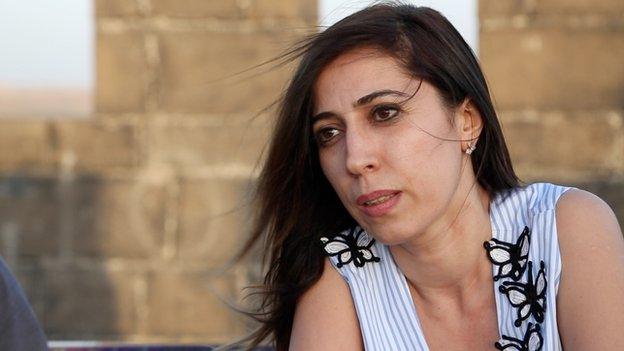Turkey female MPs elected in record numbers: Who are they?
- Published
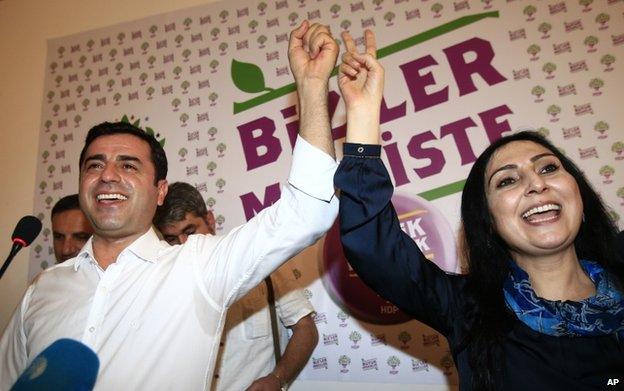
The HDP is led by both a man and a woman - Selahattin Demirtas and Figen Yuksekdag
Turkey now has more female MPs than at any time in the 81 years since women in the country won the right to stand for election.
Following Sunday's election, the 550-seat parliament now includes 98 women - up from 79 in the previous parliament.
Before the 7 June vote, more than half of Turkey's female MPs came from the governing Justice and Development Party (AK).
But the latest rise is largely due to the success of the People's Democratic Party (HDP), which entered parliament for the first time and will have 32 female MPs.
The party, which is led by both a man and a woman, demanded that 50% of its candidates standing in the election were female.
Meanwhile the far-right Nationalist Movement Party (MHP) appears to have been the worst performer in this field, with two women in the last parliament and four this time around.

Who's who?
The BBC looks at some of the most prominent female politicians in Turkey's new parliament.
Feleknas Uca
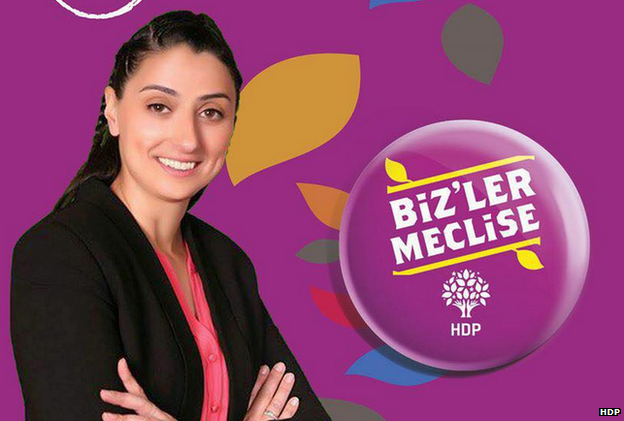
Feleknas Uca moved from Germany to the Turkish city of Diyarbakir
Feleknas Uca was previously a member of the European parliament for Germany, but is now one of Turkey's first two MPs from the Yazidi Kurdish religious community.
The 39-year-old HDP politician has faced investigations in Turkey in the past.
She was arrested at Istabul's Ataturk Airport in 2012 while carrying a large number of B-1 vitamins that she reportedly planned to take to Kurdish hunger strikers in Turkish prisons.
Leyla Sahin
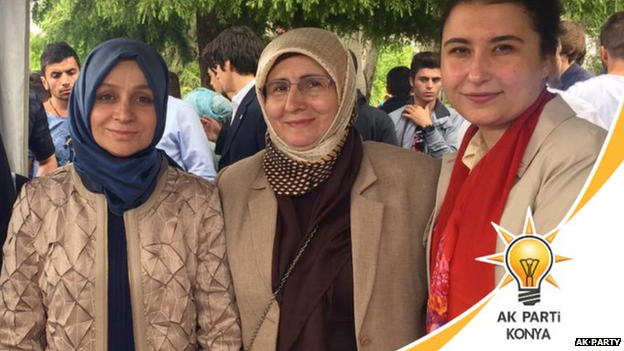
Leyla Sahin (left) says the government's lifting of a ban on wearing headscarves in state institutions has given women more freedom
AK Party MP Leyla Sahin is well known after taking legal action against the country's headscarf ban at the European Court of Human Rights a decade ago.
Dilek Ocalan
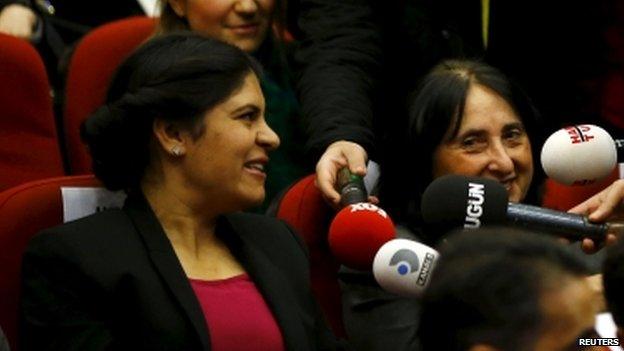
Dilek Ocalan is one of a record number of female MPs entering Turkey's parliament
The niece of Abdullah Ocalan, the jailed founder of the Kurdistan Workers' Party (PKK), Dilek Ocalan also won a seat in the vote.
At 28, she will become one of the youngest parliamentarians.
Safak Pavey
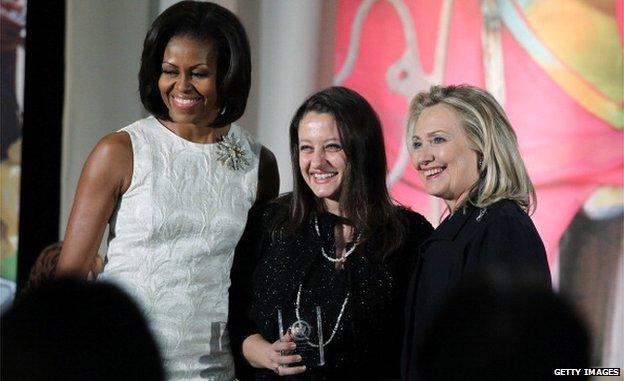
Safak Pavey was presented with an award by US Secretary of State Hillary Clinton and first lady Michelle Obama in 2012
Safak Pavey was re-elected as an MP for the main opposition party, the Republican People's Party (CHP).
She became the first disabled woman ever elected to the Turkish parliament in 2011.
Filiz Kerestecioglu
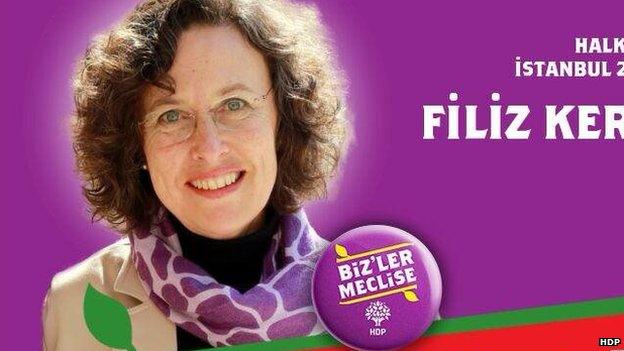
Filiz Kerestecioglu says more needs to be done to improve women's representation
Filiz Kerestecioglu, a lawyer and a women rights activist for 30 years, will be entering parliament as a member of the HDP.
She helped set up the country's first women's shelter 25 years ago. The refuge for women suffering domestic violence also become home to Turkey's feminist movement.
She told the BBC that the rise in the number of female parliamentarians was "not satisfactory but still, it is important".

Women have never been far from the political stage in the country's 92-year history.
Nearly every political party has a women's branch, and women get involved in campaigning before every election - often organising meetings and persuading others to vote a certain way.
During the 1990s, Tansu Ciller served as Turkey's first female prime minister.
However, she was one of only a handful of women MPs at the time.

Tansu Ciller was Turkish prime minister from 1993 to 1996
And figures show women have historically struggled to make it from campaign office to parliament.
According to Turkish State Statistic Agency, there have been 351 female MPs in 76 years, while the numbers if male MPs reaches into the thousands.
Successful outcome?
Equal representation in politics became a key issue in the run-up to this month's election, due to pressure from civil rights groups, women's activists and young campaigners.
But it is hard to tell whether they are satisfied by the latest numbers.
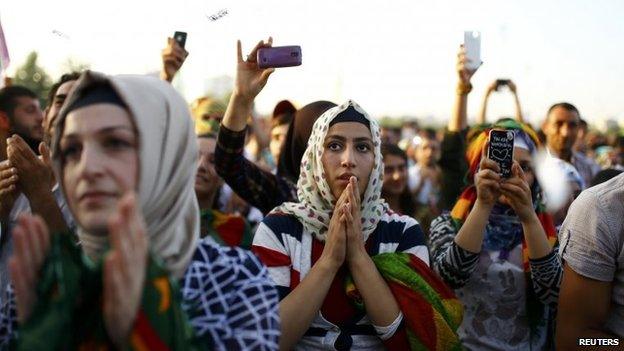
Supporters of the HDP hope the party will further women's rights in Turkey
Hatice Kapusuz from the Association for Support of Women Candidates told the BBC: "It is impossible to say whether this is a successful outcome for women."
She thinks that in order for any social change to take place, a 33% of representation in parliament is necessary.
Women now make up 17.8% of MPs following Sunday's vote, up from 14.3%.
So Turkey will have more female voices in the parliament in the next session.
But it is also clear that political parties need to do more to ensure their voices grow louder.
- Published8 June 2015
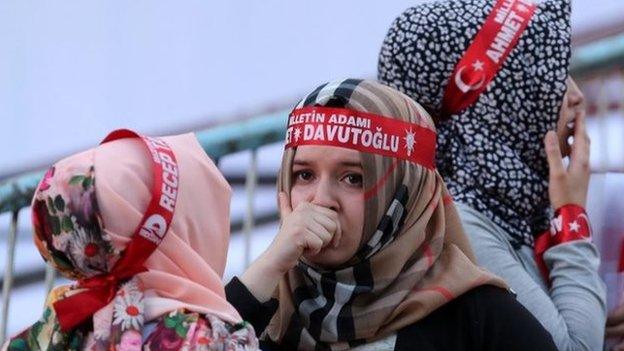
- Published3 June 2015
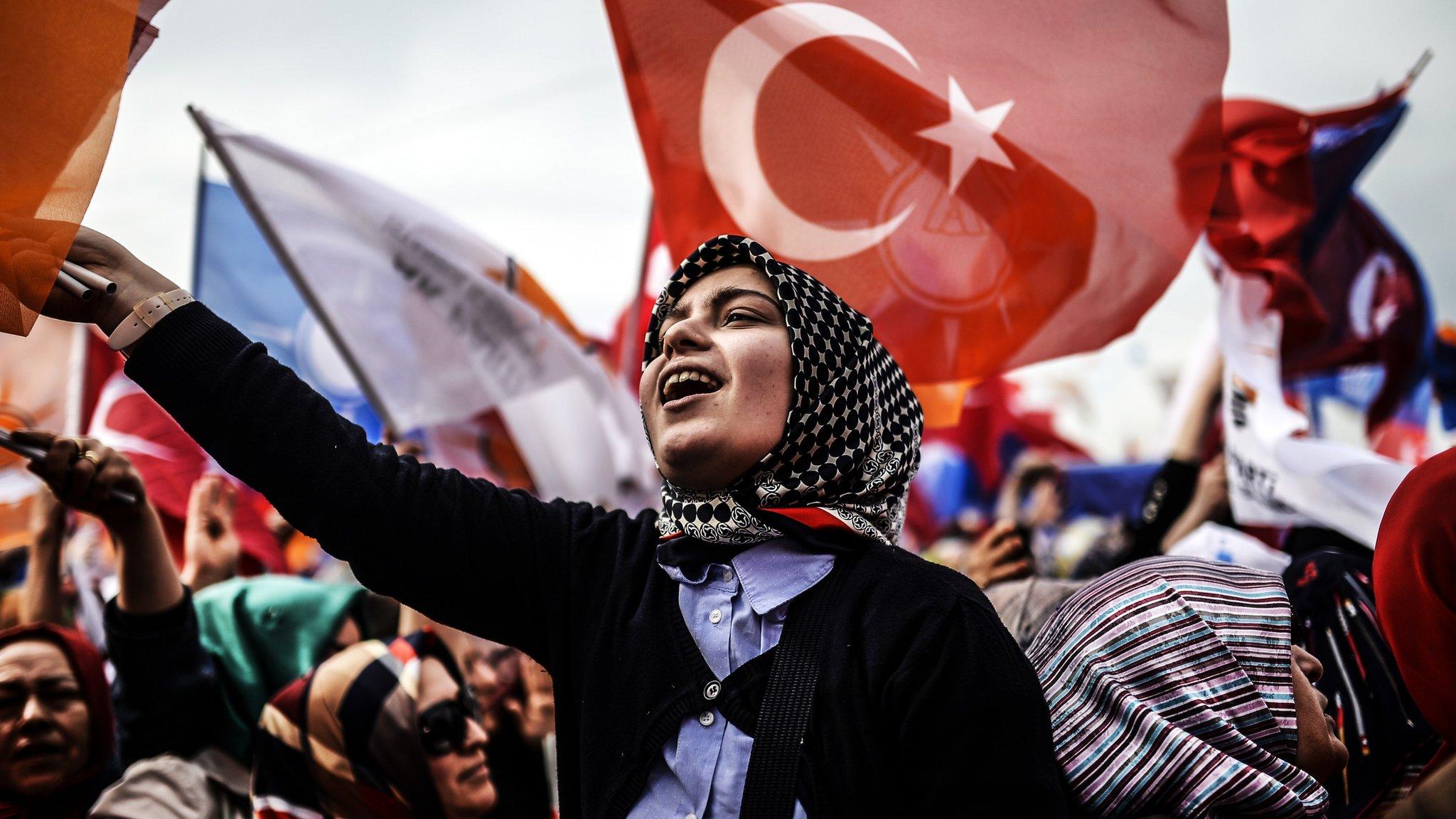
- Published1 June 2015
